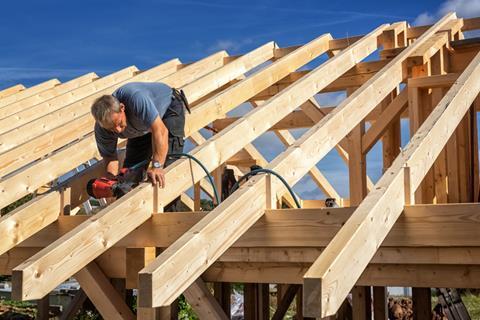Product costs now up more than 20% on last year, according to official figures
Material prices increased by 4.5% in July, with the price of certain types of imported timber rising by 23%.
Material prices across all construction sectors in July were more than 20% higher than they were in the same month last year, with repair and maintenance seeing the largest increase at 23%, according to the latest figures from the Department for Business, Energy and Industrial Strategy (BEIS).
The department said prices for imported plywood in July were nearly 82% higher than they were in August 2020, with fabricated structural steel seeing the next steepest rise in prices, at 65% higher compared with a year ag. Prices for sawn or planed wood have risen by more than 64% year on year.

The figures come as the UK’s largest housebuilder Barratt revealed that its construction costs were rising at an annual rate of 4-5%, with the firm expecting that rate of increase to continue in 2022.
Smaller housebuilders are thought to have been even harder hit by price rises, with many lacking longer term deals with suppliers and forced to instead rely on builders’ merchants for materials.
The annual rate of construction output price growth was 3.4% in June 2021, the strongest annual rate since August 2019.
The figures come following warnings from several brick manufacturers of impending price rises.
Brick maker Wienerberger is understood to have warned customers of a 10.3% price rise from 1 January next year for new orders and pre-orders across its ranges.
Ibstock also said last month that its prices would rise by 10.5% across all ranger from November, while Michelmersh recently alerted customers to a 7% to 9% price hike.
A shortage of HGV drivers is contributing to the hikes, with the Construction Leadership Council last month warning that the issue is now the major concern for many materials suppliers.
The body said that some suppliers were asking builders merchants to collect their orders because they were unable to find enough drivers to complete deliveries.











No comments yet